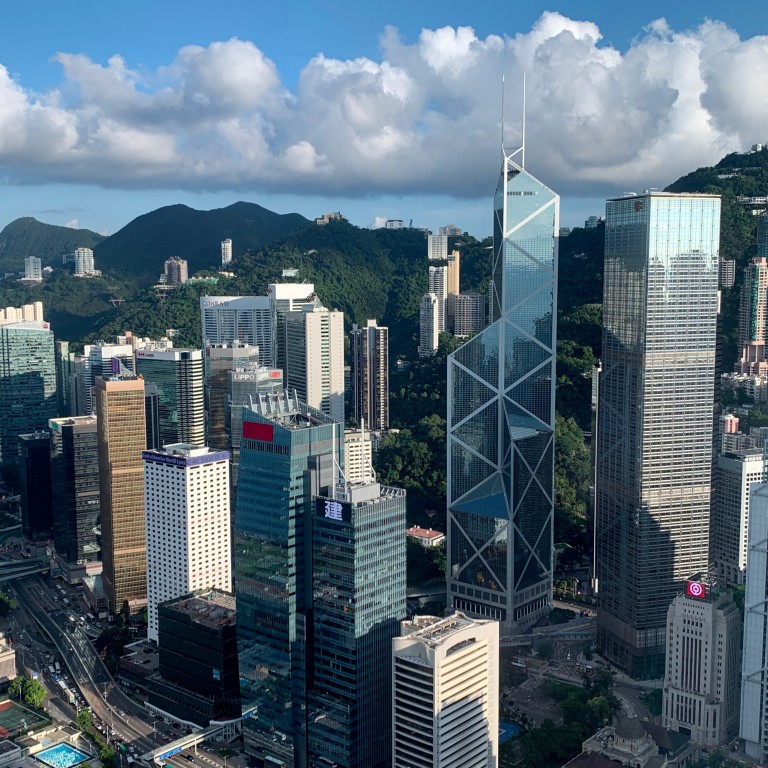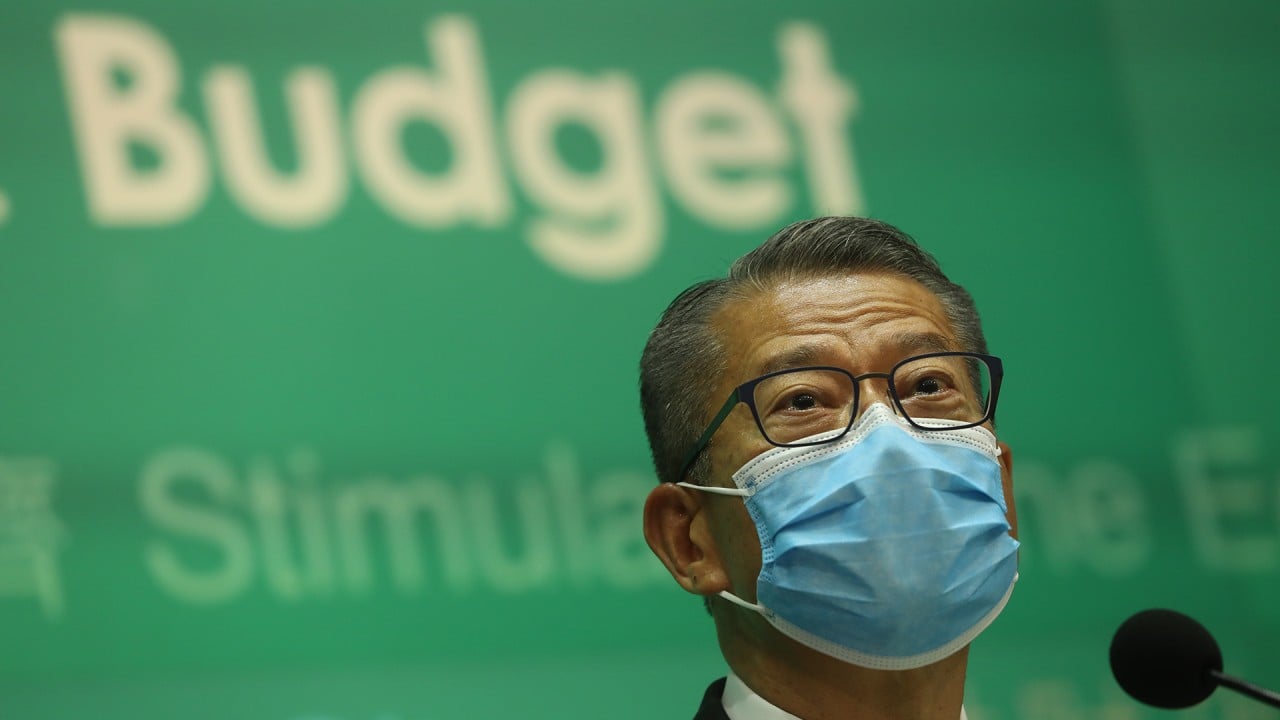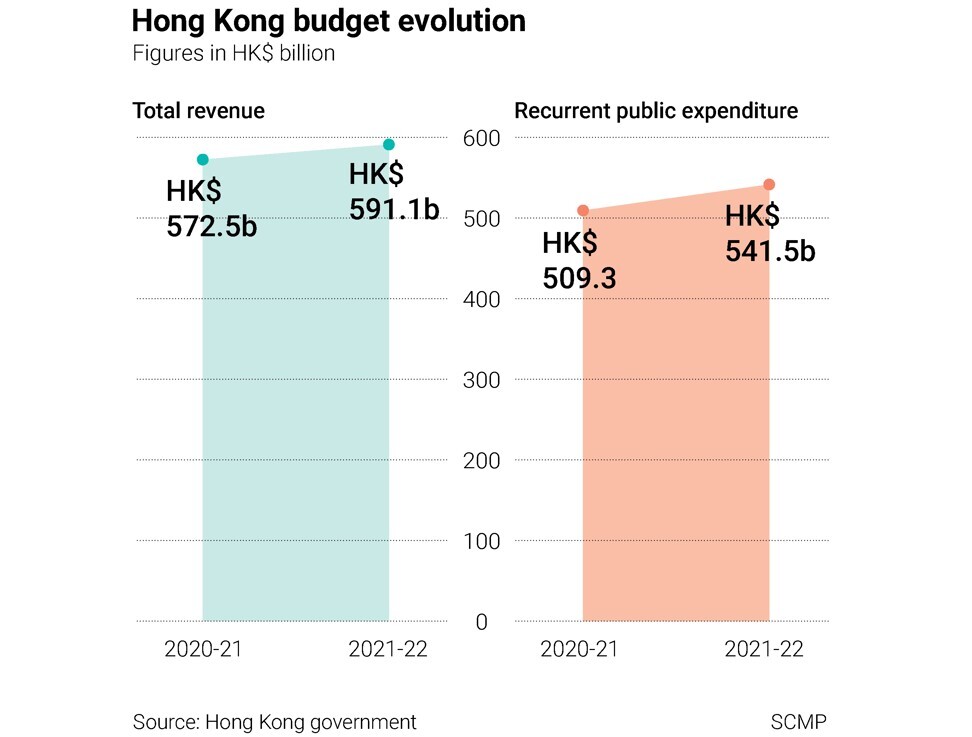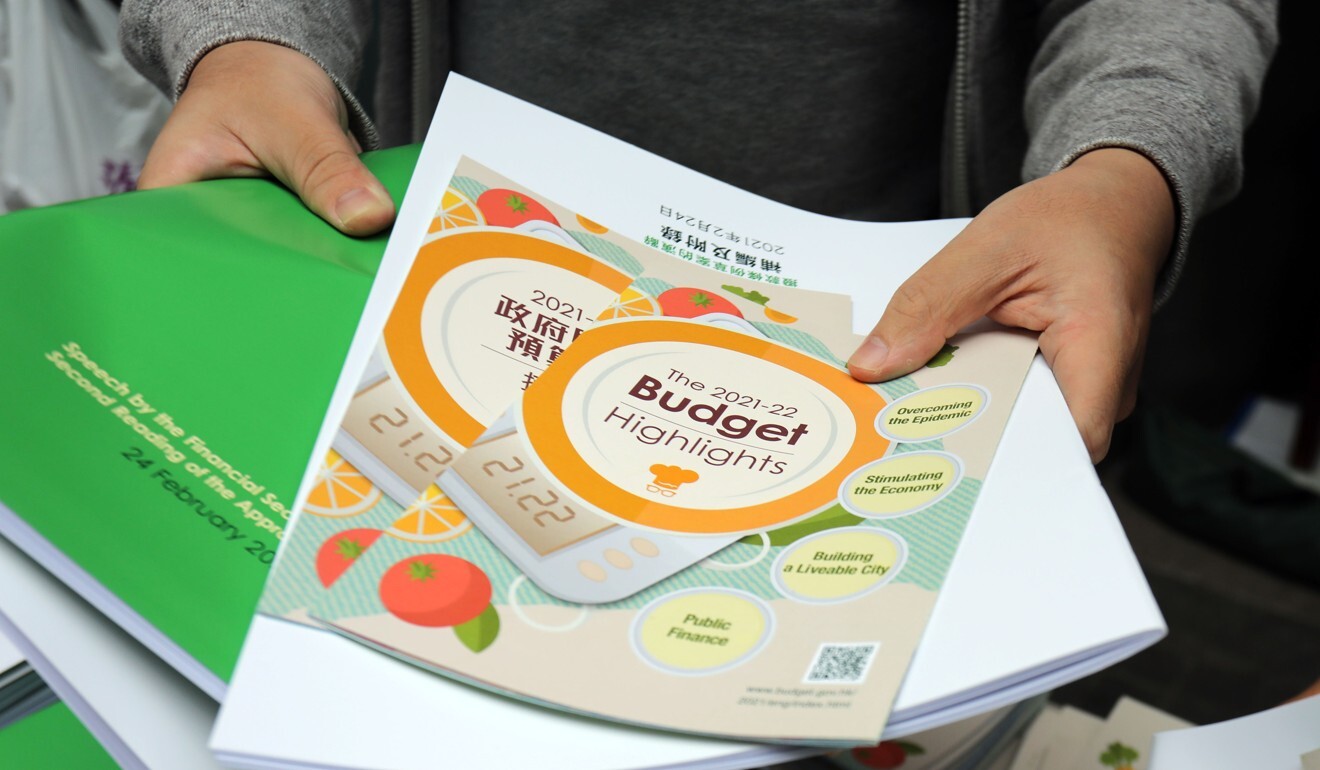
Hong Kong budget: full economic recovery will take time, say experts, despite expectation that HK$100 billion infrastructure spending spree will fuel growth
- Financial Secretary Paul Chan predicts economy will bounce back to tune of between 3.5 per cent and 5.5 per cent this year
- Money ploughed into public works projects to focus on health-related facilities and housing
Hong Kong will bank on HK$81 billion of one-off sweeteners and spending HK$100 billion in public works to pull the city out of its worst recession ever, but economists said a full recovery would take time.
While there were fewer sweeteners, which have been cut by one-third from a year ago, Chan said the roll-out of a citywide vaccination drive this week, significant capital expenditure in public works, and capitalising on rising business opportunities across the border would help revive the economy.

03:43
What Hong Kong’s 2021-22 budget means for residents of the city
A government source said the sweeteners, plus short and long-term spending and other measures would raise the city’s gross domestic product by 2 per cent this year.
“In the medium term, Hong Kong will continue to benefit from the ongoing development of mainland China and the shift in global economic gravity from West to East,” said Chan. “The economic outlook is positive.”

He anticipated that GDP would grow at an average of 3.3 per cent annually in the next three calender years to 2025, or back to 2017 levels.
The massive spending spree linked to the fight against the coronavirus left a record deficit of HK$257.6 billion for the 2020-21 financial year, but that was lower than previously expected after Chan swept HK$25 billion gains from the government investment vehicle future fund, and HK$23 billion from the housing reserve into the cash-based government accounts.
To cushion the deficits, a further HK$75 billion in previous gains from the future fund will be transferred to the account in the next few years.
Five commercial plots at old Hong Kong airport may be used for private housing
Iris Pang, ING Bank Greater China economist, said the government’s economic forecasts for this year and next three years were achievable.
“It is not too aggressive,” she said, and forecast this year’s GDP growth would be 4 per cent and 2.3 per cent for next year. “As the vaccination will start imminently, there is a high chance the border will be reopened and cross-border travel will be resumed.”
A highlight of this year’s sweeteners is HK$36 billion worth consumption vouchers the government brought in for the first time to spur local spending. Hong Kong’s permanent residents, and new immigrants aged 18 or above, will receive HK$5,000 vouchers in instalments for shopping locally.

Paul Ho Yiu-po, financial services tax leader with Hong Kong Ernst & Young Tax Services, said that measure alone would bring about 1.4 per cent growth in GDP.
He said the government plan to pump about HK$100 billion into public works projects in each of the next few years would stimulate growth while creating jobs.
In 2021-22, the lion’s share of capital works will be on health-related facilities, such as the development of a Chinese medicine hospital in Tseung Kwan O, and a new acute hospital at Kai Tak Development Area in Kowloon City, amounting to HK$59.1 billion.
Another batch of infrastructure projects totalling HK$58.8 billion would also begin, among them, phase one of the West Kowloon Cultural District art hub, as well as the site formation and infrastructure work of the Lok Ma Chau Loop development at the border, and public housing estates in Yuen Long, Tseung Kwan O and Tuen Mun.

To attract young tech talent, the government will inject HK$9.5 billion into an innovation and technology fund.
More revenue was expected from the government plan to double a green bond programme from HK$100 billion to HK$200 billion for the next five years. This means the derivative will contribute HK$19.3 billion in net proceeds in 2020-21, a contribution that will rise to HK$35.1 billion in each of the coming financial years to 2025-26.
Hong Kong to spend millions on upgrading health tech for fight against Covid-19
Other revenue would come from raising the stamp duty on stock trading from 0.1 per cent to 0.13 per cent, which will generate an extra HK$12 billion revenue annually.
While saying the government was moving in the right direction by tapping into the tax regime for more revenue, Ho said the government should conduct a comprehensive review of the city’s narrow tax base.
Simon Lee Siu-po, co-director of the international business and Chinese enterprise programme at Chinese University, said even with the economic recovery, the city’s uneven wealth distribution would continue to bite.
“The financial sector is thriving, but other sectors remain in deep water,” he said, referring to the battered retailing, food and drink, and hospitality industries. “The question is whether the unemployed will be able to find a job with the same or better pay than before, and it takes time for the economy to recover.”
About HK$934 million will be injected into tourism, nearly 80 per cent of which was earmarked for the Hong Kong Tourism Board to develop products and platforms once travel resumes, and the rest for strengthening tourism resources, heritage and hiking trails.
Additional reporting by Kathleen Magramo

